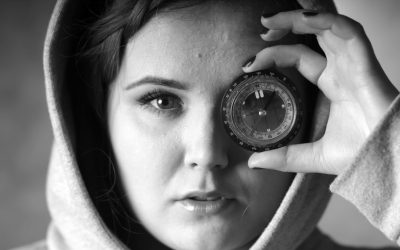Think of your mind as a family household. Inside, there are different members – your Parts. Each one has its own voice, temperament, and role. Some are playful, some are cautious, some carry wounds from the past.

How Might Mental Trauma Affect Someone Physically?
When we think of trauma, our minds often go straight to emotional pain or mental distress.
But trauma doesn’t just live in the mind it lives in the body, too. The effects ripple through every layer of our being, manifesting not only as emotional struggles but also as tangible, physical experiences.
Understanding how trauma affects us physically both in the traditional, bodily sense and in the broader sense of how we behave and engage with the world is vital to breaking cycles of suffering and reclaiming our wellbeing.
The Many Faces of Trauma
Trauma isn’t one-size-fits-all. It can stem from a wide range of experiences: childhood neglect, domestic abuse, accidents, medical emergencies, loss, betrayal, or witnessing violence. There are also complex traumas that build over time, such as growing up in a dysfunctional home or enduring systemic oppression. Each type of traumatic event leaves its unique imprint, and yet, the body’s response often follows familiar patterns.
As Dr. Gabor Maté reminds us:
“Trauma is not what happens to you, it’s what happens inside you as a result of what happens to you.”
It’s the internal impact. The beliefs, the nervous system shifts, the coping mechanisms that linger long after the event itself.
The Bodily Reactions to Trauma
On a physiological level, trauma hijacks the nervous system. When a person experiences trauma, their body shifts into survival mode often referred to as the “fight, flight, freeze, or fawn” response. Initially, this response is protective, but when trauma remains unresolved, the body can get stuck in this heightened state of alert.
Disordered Sleep: One of the most common physical symptoms is disrupted sleep. Many trauma survivors experience insomnia, nightmares, or night terrors. Their body remains hyper-vigilant, making it difficult to relax and fall into restorative sleep.
Anxiety & Stress: The body may constantly feel on edge. Rapid heart rate, shallow breathing, tense muscles, and even digestive issues are all signs of an overactive stress response. Long-term, this can contribute to chronic health issues such as high blood pressure, autoimmune conditions, and hormonal imbalances.
Dissociation: While not always recognised as a physical symptom, dissociation the feeling of being disconnected from your body or surroundings is a survival mechanism. It can feel like zoning out, feeling detached from reality, or experiencing parts of life as though you’re watching them happen to someone else.
Focus & Cognitive Issues: Trauma can impair the brain’s executive functioning. Concentration becomes difficult. Simple tasks feel overwhelming. This is more than just being distracted it’s the brain’s protective mechanism diverting energy toward survival rather than day-to-day focus.
As Dr. Bessel van der Kolk, author of The Body Keeps the Score, explains:
“The body keeps the score: if the memory of trauma is stored in the body, the body needs to be included in the healing process.”
The Behavioural and Relational Impact
When we broaden our definition of “physical,” we must include the observable ways trauma shapes how we behave and interact with others. These patterns are often subconscious, but they are very real, very physical manifestations of unresolved trauma.
Avoidance and Withdrawal: Many trauma survivors isolate themselves, avoiding people, places, or activities that might trigger painful memories or sensations. This can lead to loneliness and even more entrenched fear.
Relationship Difficulties: Trauma can create distorted beliefs about trust, safety, and self-worth. Survivors may struggle to form close bonds, fall into codependent or toxic relationships, or keep people at arm’s length, fearing vulnerability will only bring more pain.
Overreactions to Events: Trauma heightens sensitivity to perceived danger. Small conflicts or misunderstandings may trigger intense fear, anger, or panic, seemingly out of proportion to the situation.
Fears, Phobias & Emotional Numbing: Trauma can manifest as specific fears or phobias, seemingly irrational but deeply wired into the nervous system. Alternatively, some individuals emotionally shut down altogether, feeling numb, detached, or unable to experience joy.
Why Understanding the Physical Impact Matters
For many trauma survivors, the first step toward healing is realising that their physical symptoms and behaviours aren’t signs of weakness, they are signs of survival. Your body and brain adapted in the best way they knew how at the time. But what protected you then may now be holding you back.
Dr. Gabor Maté offers this perspective:
“The attempt to escape from pain is what creates more pain.”
The good news? With awareness and the right support, you can stop escaping and start healing.
Trauma left untreated doesn’t simply fade. Its effects can intensify over time, affecting your physical health, your relationships, and your ability to thrive. That’s why holistic healing approaches those that address both mind and body are so crucial. Therapeutic tools such as EMDR, Hypnotherapy and Somatic practices help to release trauma stored in the body, retrain the nervous system, and reframe unhelpful beliefs.
Final Thoughts
If you recognise yourself in any of these patterns, disrupted sleep, constant anxiety, difficulties in relationships, or disproportionate reactions, know that you’re not alone, and more importantly, the are many therapeutic approaches your mind and body will respond well to. You’re human. And healing is possible.
As Bessel van der Kolk reminds us:
“Being able to feel safe with other people is probably the single most important aspect of mental health.”
Your mind and body crave peace, safety, and freedom. The first step? Acknowledging the connection between mental trauma and physical symptoms. Keeping a daily journal will help you pay attention to your feelings and symptoms.
Ready to explore how trauma-informed coaching or therapy can help you reconnect with your authentic, empowered self?
Hi! I’m Roksana. I’m a life coach for women in St Albans, Hertfordshire. I run face to face and online sessions via Zoom. I also specialise in trauma healing. I’m always happy to answer your questions around any of my methods or approaches. Long term changes begin with a guide who has walked a similar path, has a blueprint, will give you support and accountability every step of the way. If you’re interested to know more then please book a FREE call with me.
Ready to connect with your empowered self?
Recent Blog Post
What Are The Aspects That Drive a Person To Seek a Life Coach?
What nudges a person from quiet discomfort to actively seeking support from a life coach?
Let’s unpack the different ways people arrive at this decision and the types of challenges that bring them to coaching plus three real-world-inspired case studies that illustrate the evolution.
Do Organisations Hire Life Coaches?
Coaching in organisations is widely seen as transformative because it delivers measurable and cultural shifts across three critical axes: profitability, talent retention, and talent growth.
Is Life Coaching Considered Therapy or Counselling?
In the UK’s growing world of mental health and personal development, many people wonder: Is life coaching the same as therapy or counselling? The short answer is no but they do overlap in powerful ways. Understanding the distinctions helps you access the right kind of support at the right time.
What Is Life Coaching For Your Life and Career?
From career transitions to relationship healing, from financial empowerment to emotional resilience, life coaching offers a structured, supportive, and deeply personalised path forward. But what exactly does life coaching involve and how can it help optimise the quality of your life and career?





